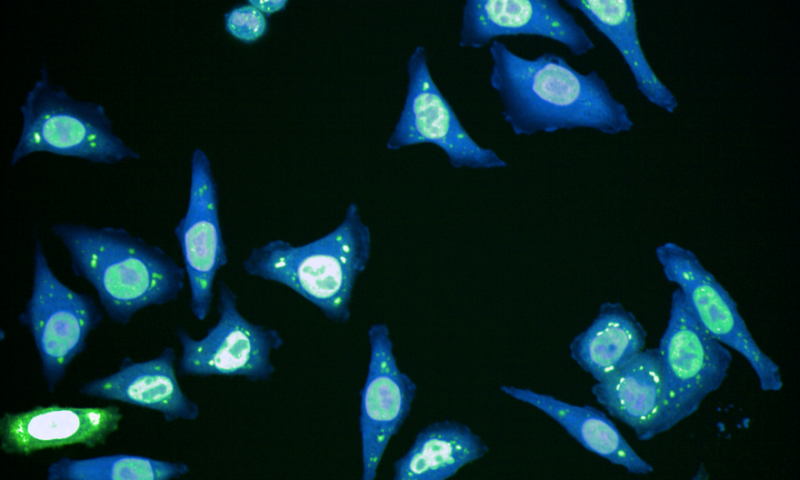Dewpoint Therapeutics was founded because “the pharma industry has kind of been fighting with one arm behind its back,” the company’s CEO Amir Nashat said, citing his colleague Mark Murcko.
The company emerged in 2018 in both Cambridge, Massachusetts, and Dresden, Germany, to develop drugs targeting one of the more mysterious cell organelles, biomolecular condensates, whose main job is to surround and contain reactants such as proteins for chemical reactions within cells. Although drug developers have long known about condensates, they have been poorly understood and, as a result, were untapped as drug targets.
Since launch, Dewpoint has inked a $305 million deal with Merck to work on using its technology to treat HIV as well as a multiyear, $100 million deal with Bayer to advance research into both cardiovascular disease and women’s health.
This series B round, led by Arch Venture Partners with new backers Maverick Ventures and Bellco Capital along with existing investors Leaps by Bayer, EcoR1 Capital, Polaris Partners, Samsara BioCapital and Innovation Endeavors, will help Dewpoint ramp up the work on the aforementioned diseases and others, including neurodegenerative diseases like amyotrophic lateral sclerosis (ALS) and certain cancers.
Dewpoint’s technology works on all these diseases because “the proteins or the targets that cause the diseases in each case have been identified as being misregulated in a condensate. Something’s gone wrong where this protein was supposed to be in a particular condensate, or suddenly it’s ending up in a condensate, and we’re able to intervene to change that behavior,” Nashat said.
While many of us may imagine the inside of a cell looking like “a nice vegetable broth where everything is evenly distributed,” Nashat said, he describes the texture of a cell’s interior as more of a “super thick chili” in which a cell is “bringing things together and taking them apart at essential moments to drive reactions.”
Understanding this difference is key to Dewpoint’s approach, which Nashat thinks is the only one of its kind. Instead of targeting the active site of a protein, Dewpoint targets the internal movements of proteins within the cell.

to advance to the clinical stage. (Dewpoint Therapeutics)
“Traditionally, we view everything as either being on or off. So when you’re trying to drug something, you’re just trying to beat it into submission, either silence it or inhibit the active site,” he said. Instead, the cell “moves things into locations where they start to work together and then it takes them apart. And we are basically able to appreciate those motor movements, and then stop the movement. And it’s just a whole new way of drugging things.”
Nashat said this approach can reduce drugs’ side effects because, in the case of HIV and similar diseases, they’re targeted more specifically to the movements of the proteins rather than the active site of the protein itself, which can be similar to other types of proteins’ active sites.
In the case of ALS, though, the approach is more effective, because it helps drugmakers find solutions to previously “unsolvable” problems, according to Nashat, namely that the ALS mutation occurs in a part of the protein that “doesn’t do anything,” rendering a traditional targeted approach ineffective.
Now, Nashat is focused on putting “the pedal to the metal” to advance to the clinical stage. “We want to get some answers to how important these medicines can be for patients as soon as possible,” he said. “Every day, there’s another patient or disease.”

